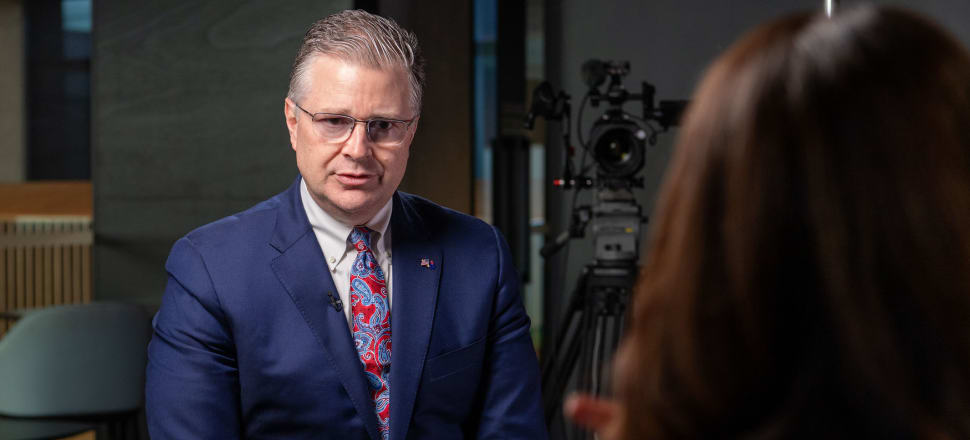
Fresh off a promising trip to Beijing, a US diplomat says his country is doing all it can to avoid miscalculation in tensions with China
A senior American official has sought to ease Kiwi fears about a new Cold War, saying the United States is committed to responsibly managing its growing competition with China.
It's a message that will be music to the ears of Foreign Affairs Minister Nanaia Mahuta, who herself reiterated New Zealand’s desire not to be forced into making binary choices between the two superpowers.
Mahuta and Daniel Kritenbrink, the US State Department’s assistant secretary for the Bureau of East Asian and Pacific Affairs, were among the speakers at the NZ Institute for International Affairs annual conference in Auckland on Thursday.
READ MORE: * The China Tightrope: War on our doorstep? * Mahuta's China trip a test of NZ sensitivities
Kritenbrink arrived in New Zealand fresh from a trip to Beijing for what both nations described as candid and productive discussions, and told the audience the US was “committed to keeping open channels of communication so we can manage responsibly our increase in competition” no matter what happened in the relationship.
“I also want to reassure you that we do not seek conflict with China or a new Cold War.
“We are not trying to contain China. Even as we compete, we will work to maintain open lines of communication so as to avoid miscalculation and to prevent competition from veering into conflict.”
However, Kritenbrink presented an unsurprisingly grim view of the geopolitical landscape, saying the values and norms that had maintained global stability and prosperity for decades were now under threat.
“We are committed to working with allies and partners to advance a free and open Indo-Pacific, one that is at peace and grounded in respect for a rules-based international order, and to standing up to attempts by anyone to undermine that order,” he said. Changing geopolitical realities had “helped to remind us who our friends are”.
Kritenbrink offered praise for New Zealand’s decision to impose autonomous sanctions against Russia over its invasion of Ukraine, and said the US was stronger and more secure when it had successful, like-minded partners around the world to work with.
“Although the international environment may be more complicated, it does not represent a new Cold War or require binary choices.” – Foreign Affairs Minister Nanaia Mahuta
In her own speech, Mahuta said New Zealand’s international relationships were not confined to countries that shared an identical view of the world.
“Although the international environment may be more complicated, it does not represent a new Cold War or require binary choices.”
It was a message potentially at odds with Defence Minister Andrew Little’s reassertion the same day that a changing environment meant New Zealand had no desire to carry out joint military exercises with Chinese forces – although Mahuta and Little remain in sync on the realities of New Zealand’s ‘independent’ approach to foreign policy.
"An independent foreign policy does not mean isolation, neutrality, or a fixed predetermined view of how we will act on a particular issue," she said.
Speaking specifically about China, Mahuta said bilateral ties extended beyond trade to longstanding cultural connections. Its rise in recent decades was “the most … remarkable story of development in our lifetime”, but that ascent and its more assertive foreign policy had also contributed to some of the concerning trends in the wider international climate.
“A shift to a more contested environment is unsettling for countries that benefit from the security of international rules and norms, a challenge to the system has wider ramifications, contributing to poverty levels, and indebtedness, conflict, economic exclusion, and human rights abuses,” Mahuta said.







